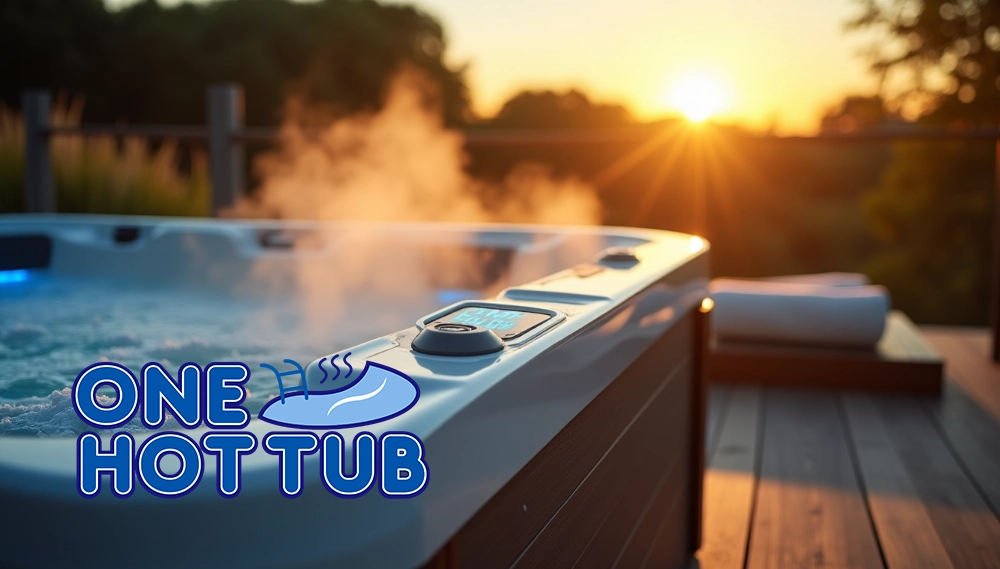Table of Contents - Can You Put Epsom Salts In A Hot Tub?
- Can You Put Epsom Salt in a Hot Tub? What Hot Tub Experts Want You to Know
- What Is Epsom Salt and Why People Want to Use It
- Why You Should Never Put Epsom Salt in a Hot Tub
- Corrosion of Metal Components
- Damage to Seals and Gaskets
- The Science Behind Hot Tub Damage from Epsom Salt
- How Magnesium Sulfate Interacts with Hot Tub Materials
- What Happens If You’ve Already Added Epsom Salt
- FAQs
- Is all Epsom salt the same?
- Where did Epsom salt get its name?
- Will Epsom salt make hot tub water feel rough on skin?
- Where can I purchase Epsom salt?
- Why exactly does Epsom salt damage hot tub components?
- What about bath bombs and bubble bath in hot tubs?
- Are saltwater hot tubs better alternatives?
- What hot tub-specific products can safely replace Epsom salt?
- Can I add Epsom salt to my hot tub for relaxation?
- What are the risks of using Epsom salt in a hot tub?
- Are there safe alternatives to Epsom salt for hot tub relaxation?
- What should I do if I’ve already added Epsom salt to my hot tub?
- How can I enhance my hot tub experience without using Epsom salt?
This blog post may contain affiliate links. As an Amazon Associate I earn from qualifying purchases.
Can You Put Epsom Salts In A Hot Tub?
Can You Put Epsom Salt in a Hot Tub? What Hot Tub Experts Want You to Know
It’s a question many hot tub owners ask—especially after a long day or a tough workout: Can I add Epsom salt to my hot tub to help with sore muscles? While it might seem like a relaxing idea, hot tub experts advise against it.
Epsom salt (magnesium sulfate) is often used in bathtubs for temporary relief from muscle aches and joint stiffness. However, hot tubs are not just oversized baths—they’re complex systems with pumps, filters, and heaters that rely on balanced water chemistry. Adding Epsom salt can disrupt that balance and damage components, leading to expensive repairs.
The short answer? No, you should not put Epsom salt in your hot tub. There are safer, hot tub-friendly alternatives if you’re looking to unwind and ease sore muscles—without risking your equipment or water quality.
What Is Epsom Salt and Why People Want to Use It
Epsom salt is a naturally occurring mineral compound made of magnesium and sulfate. It’s been used for generations in baths to relieve tension, reduce swelling, and promote muscle relaxation. Many people swear by its soothing effects on sore muscles after exercise or physical work.
This is why the idea of adding it to a hot tub is so appealing—it combines the calming effects of warm water with the healing touch of magnesium. But here’s the catch: while it works great in a simple bathtub that drains after one use, a hot tub’s internal system recirculates water, making it sensitive to chemical additives.
People are drawn to Epsom salt for its perceived health benefits, but when it comes to hot tubs, the risks outweigh the rewards. Luckily, there are spa-safe products specifically designed to offer similar muscle-relaxing benefits without compromising your hot tub’s performance.
Traditional therapeutic benefits
- Kicks those achy muscles to the curb and fights inflammation
- Melts stress away like butter
- Plays nice with troubled skin – goodbye psoriasis and eczema!
- Takes the edge off arthritis, sprains, and those nasty bruises
- Helps you catch those precious Z’s
Why hot tub owners are tempted to add it
- Speed up those post-workout recovery vibes
- Turn their backyard into a five-star spa
- Let magnesium work its relaxation magic
- Score baby-soft skin while soothing those aches
Why You Should Never Put Epsom Salt in a Hot Tub
Corrosion of Metal Components
Epsom salt might be gentle on your skin, but it’s not so kind to the inner workings of your hot tub. Magnesium sulfate, the key ingredient in Epsom salt, can accelerate corrosion to metal components when added to hot tub water.
Your hot tub’s heater element, pump housing, and jet fittings often contain stainless steel or other metals. When exposed to the increased salinity and mineral content that Epsom salt introduces, these parts can begin to rust, pit, or degrade over time. This kind of corrosion doesn’t just shorten the lifespan of your equipment—it can also lead to safety issues and costly repairs.
So while you may be aiming for a relaxing soak to ease sore muscles, adding Epsom salt could quietly be damaging the very system that keeps your hot tub running smoothly.
Damage to Seals and Gaskets
Aside from metal parts, your hot tub relies on a network of rubber and synthetic seals and gaskets to keep everything watertight and functioning properly. These components are designed for balanced hot tub water—not mineral-heavy solutions like Epsom salt.
When exposed to magnesium sulfate, these seals and gaskets can dry out, warp, or become brittle, leading to leaks and system failures. This kind of damage often starts small but can escalate quickly, resulting in water loss or mechanical breakdowns.
Replacing these components isn’t just inconvenient—it can also be expensive. To avoid these issues, it’s best to steer clear of Epsom salt entirely and choose products that are specifically formulated to be safe for your spa’s internal systems.
Impact on water chemistry balance
- Your sanitizers losing their cleaning mojo
- Uninvited bacteria throwing a pool party
- Skin getting cranky and irritated
- A constant battle to balance chemicals
Increased total dissolved solids (TDS)
- Scale building up like unwanted hot tub armor
- Water turning cloudy and uninviting
- Jets and pipes getting sluggish
- Filters getting gunked up with oily residue
- Jets creating a foam party (not the fun kind!)
The Science Behind Hot Tub Damage from Epsom Salt
How Magnesium Sulfate Interacts with Hot Tub Materials
Magnesium sulfate (Epsom salt) may seem harmless—it dissolves easily, feels silky in water, and is widely used in home baths. But when introduced to a hot tub, it interacts quite differently due to the sensitive design of spa systems and the materials used in their construction.
Hot tubs are engineered with a combination of metals, plastics, rubber seals, and acrylic surfaces, all of which are carefully selected to withstand balanced hot tub water—not chemically enriched solutions like Epsom salt.
Here’s how magnesium sulfate affects these materials:
Metals: Magnesium sulfate increases the water’s conductivity, which can accelerate electrochemical reactions in metal components such as the heating element, jet nozzles, and pump impellers. Over time, this leads to pitting, rusting, and corrosion, compromising performance and safety.
Rubber and synthetic seals: These materials are prone to chemical fatigue when exposed to high concentrations of minerals. The salts can cause seals to dry out or degrade, leading to leaks in pipes, fittings, and the pump housing.
Plastics and acrylic surfaces: Although generally durable, plastics can be etched or dulled by prolonged exposure to mineral-heavy water. Magnesium sulfate can create surface film or scaling, making the shell harder to clean and potentially affecting its appearance and texture.
Water chemistry: Epsom salt throws off your water’s pH, total alkalinity, and hardness levels. This makes it harder to maintain balance, which stresses all components and leads to cloudiness, foaming, or skin irritation—even if the water looks fine at first glance.
In short, magnesium sulfate creates a chain reaction of imbalances and material stress that can reduce the life of your hot tub and increase your maintenance costs. If you’re after muscle relief, there are spa-safe alternatives that deliver the benefits without the drawbacks.
Chemical reactions with sanitizers
- Epsom salt splits into its ion buddies
- These ions crash your pH party
- Your sanitizers lose their cleaning superpowers
- Uninvited bacteria see their chance to multiply
Scale formation process
- Epsom salt dissolves, sending TDS levels through the roof
- Water evaporates, concentrating these minerals
- Minerals get too cozy and start settling out
- Hard, chalky deposits make themselves at home
What Happens If You’ve Already Added Epsom Salt
Draining and cleaning procedure
- Hunt down that drain valve and hook up your garden hose (point it somewhere safe – your flowers might not appreciate a salt bath!)
- Pop open the valve and watch that troublemaker water march away
- Got a wet/dry vacuum? Time to play detective and hunt down every drop hiding in the footwell
- Those filters need a spa day of their own – clean them thoroughly or treat them to retirement if they’re looking tired
- Give those interior surfaces some TLC with non-abrasive cleaner (those jets need extra attention!)
- Rinse like you mean it – any cleaning residue needs to hit the road
Assessing potential damage
- Metal parts showing signs of the salt attack (think rusty spots on heater elements and pumps)
- Your smooth acrylic surface sporting unwanted battle scars from salt scrubbing
- Seals and gaskets that might have thrown in the towel
- Crusty scale buildup playing hide and seek in pipes, jets, or heating elements
FAQs
Is all Epsom salt the same?
Epsom salt should not be used in hot tubs
Where did Epsom salt get its name?
Will Epsom salt make hot tub water feel rough on skin?
make the water feel “hard”throw off the water’s pH and alkalinity balance
Where can I purchase Epsom salt?
it’s for bathtubs, not hot tubs.
Why exactly does Epsom salt damage hot tub components?
water’s chemical balancepump seals, heater elements, filters, and plumbingscale buildup
What about bath bombs and bubble bath in hot tubs?
clog filtershot tub safe
Are saltwater hot tubs better alternatives?
they use special salts designed for hot tubskinder to skin and eyes
What hot tub-specific products can safely replace Epsom salt?
hot tub-safe aromatherapy crystals, liquids, or spa bombsSpazazzinSPArationAromafloria
Can I add Epsom salt to my hot tub for relaxation?
chemical imbalance and equipment damagehot tub-approved alternatives
What are the risks of using Epsom salt in a hot tub?
- Corrosion of components (heater, jets, plumbing)
- Invalidating manufacturer warranties
- Cloudy or foamy water
- Increased maintenance costs
- Skin or eye irritation from unbalanced water
Are there safe alternatives to Epsom salt for hot tub relaxation?
- Hot tub-safe mineral soaks
- Aromatherapy crystals
- Essential oil blends made for spas
These maintain your hot tub’s health and your comfort.
What should I do if I’ve already added Epsom salt to my hot tub?
- Drain the tub completely
- Flush the system (consider using a jet line cleaner)
- Refill with clean water
- Balance water chemistry from scratch
This helps minimise long-term damage.
How can I enhance my hot tub experience without using Epsom salt?
- Add spa-safe aromatherapy products
- Use subtle LED lighting for ambiance
- Try adjustable jets for a tailored massage
- Play soothing music or nature sounds
- Maintain ideal temperature and water quality for peak comfort



